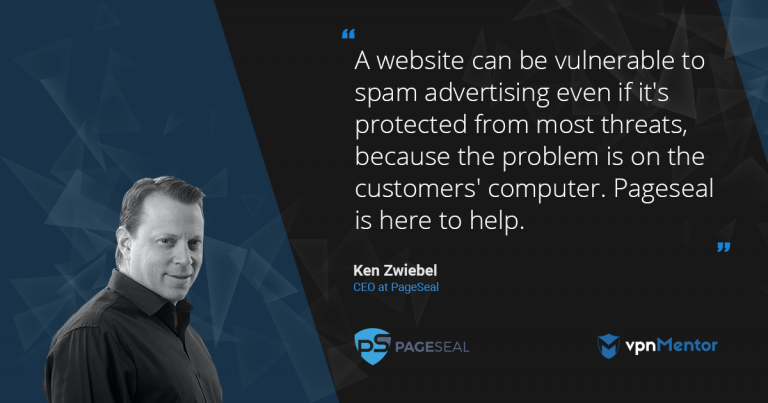Browser Spam Could be Stealing Your Customers, PageSeal CEO Explains
Imagine you're walking into a Best Buy store to buy a TV. A sales person shows you the different models, you come to a conclusion and you're even happy with the price. But just as you're walking over to the cashier, someone from Target approaches you to offer you that same TV for a better price. Obviously, Best Buy would never let that happen in a real store, but online, it happens all the time. Customers are simply stolen from one website and led to another, often without even knowing it. Many eCommerce websites don’t even realize that it's happening to them, until it's too late. Share
Starting PageSeal, our main vision was to create a product that allows eCommerce websites to protect their customers from unnecessary distractions and increase their trust.
How prevalent is browser spam?
There's not one number to point out, because it varies greatly depending on the demographics of the target audience. You can have 5% of your users suffering from this problem, or it could go all the way up to 20% of your total traffic.
A website can be vulnerable even if it's protected from most threats, because the problem is on the customers' computer. There are files that people download to their computer, because they want to use a software or watch a movie for free, without knowing that they come with a costly price. These files remain dormant until the user comes to make a purchase. Then, it contextually identifies what the user is looking for and offers them the same product for a lower price.
The net effect is that the website that you intended to visit gets all the blame if anything goes wrong. But eCommerce isn't the only problem. The same thing can happen with porn advertisements. The website had no responsibility whatsoever, but if your 11 year old son happened to come across it, the legitimate website, though having nothing to do with it, will usually take the blame.
Now, imagine you're browsing a large news website. Instead of popping e-commerce or porn advertisements, it injects fake news articles into the page. You expect your favorite news website to have real stories, so you share it online, which is the worst thing that could happen to publishers.
Unfortunately a lot of people have interest in stealing eCommerce clicks. Aggressive affiliate marketers will do anything to take a customer into their store. We're talking about millions of customers, and hundreds of million dollars for affiliate marketers, it’s a very competitive niche. Some of them do it 100% openly, legitimizing what they're doing because they're not hiding it.
We've identified over 6000 spammers that do it openly, but surely that are others too.
We've seen a lot of fake news since the last month, mainly from political groups that want to affect public opinion. Think about the kind of damage they can do.
How does your product work?
We don’t expect the customers to do anything. We're only B2B, our solution is installed on the website and it searches and detects any kind of attack that happen on the customers' computer. We don't even clean viruses from their computer, we just sweep the ads away while they are on the website, to allow a clean browsing experience.
We provide eCommerce websites with 2 levels of service: detection and blocking. After installing our plugin, you will see a dashboard with full visibility of the data presented on your website. You can drill down to specific pages and define geo-locations to look at. On an eCommerce website, the cart and checkout page are obviously the most vulnerable. We give our customers full data on all of this, and once you've seen your infection rate, you can make a decision to move to a blocking strategy.
What platforms are most vulnerable to browser spam advertising and why?
If you haven't actively sought out this particular problem, you're susceptible to it. We've observed it spanning various geographic locations, with infection rates being considerably higher in countries like Russia and China. Within the e-commerce sector, the most profitable websites are targeted. We safeguard billions of pages every month, and our objective is to shield every website from such attacks.
Ad blocker is now a default setting in Google Chrome. Isn't it enough?
Ad blockers have a specific purpose in mind, they are only interested in blocking things that come from the cloud. The injections that I'm talking about don’t come from any of the ad networks but from the client side, where Ad blockers have nothing to offer.
What are the odds of having the police interfere with such threats?
I doubt the police will get involved. Generally they tend to ignore cyber crime because it's too vast for their abilities. The question that should be asked is: who is the police of the internet? Who is the company that will manage to combat such crimes, when every geography has its own laws and regulations? In my opinion, it will take at least a few more years, if ever, for the police to even begin going into it. That's why we exist.




Please, comment on how to improve this article. Your feedback matters!